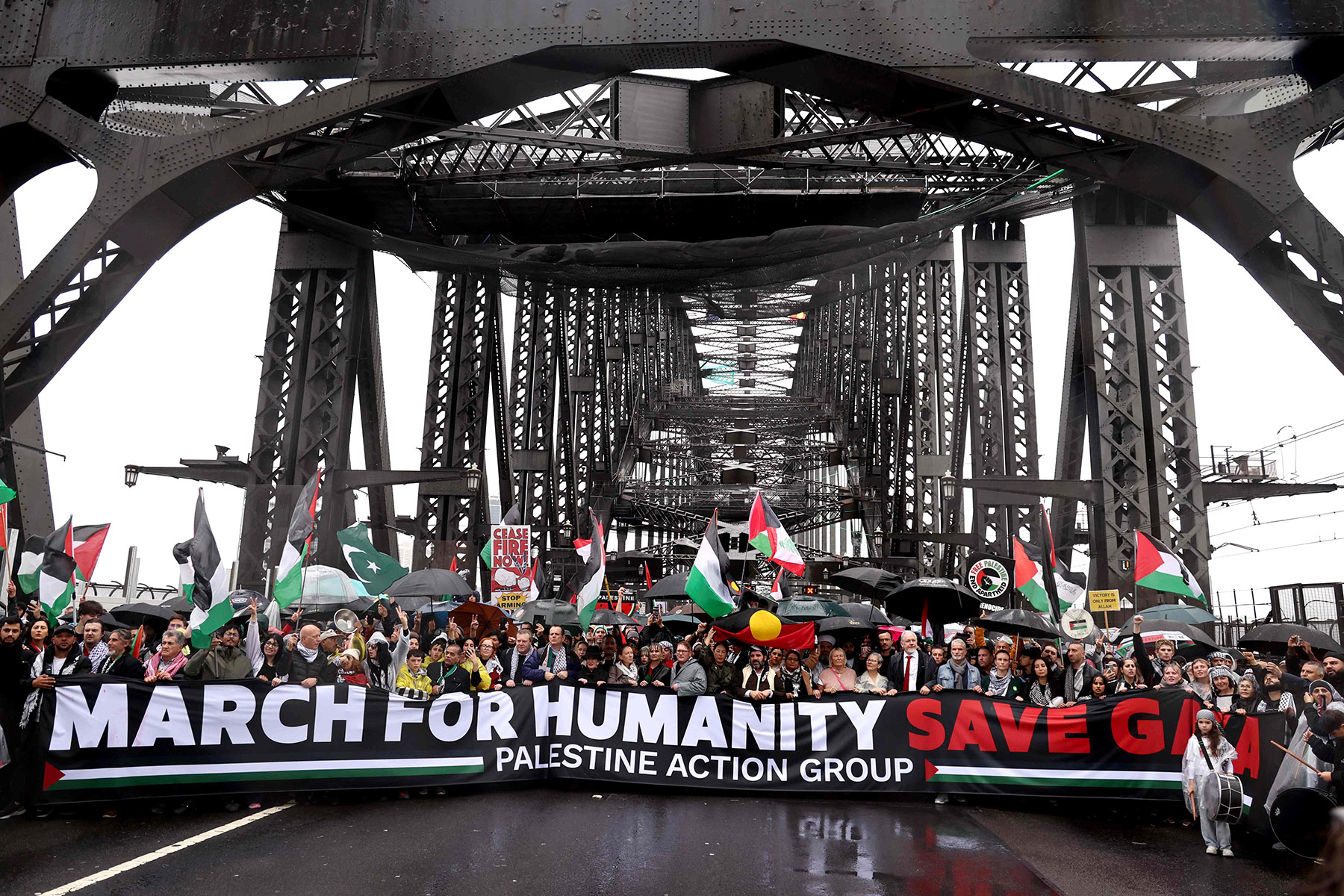Pressure mounts on Israel as global recognition for Palestinian state grows

Hamas said on Saturday it would not disarm unless a fully sovereign State of Palestine is established, following weeks of Gaza ceasefire negotiations with Israel.
The group was responding to recent remarks purportedly made by United States special envoy Steve Witkoff during his trip to Israel and Gaza, amid widespread criticisms that Israel was allegedly weaponizing starvation and an increasing number of countries, particularly from the West, coming forward to recognizing Palestinian statehood.
"The resistance and its weapons will not be abandoned until our full national rights are restored, foremost among which is the establishment of an independent, fully sovereign Palestinian state," Hamas said in a statement on Saturday.
READ MORE: Israeli minister visits Al-Aqsa Mosque, calls for Gaza reoccupation
Witkoff, while meeting the families of Israeli hostages in Tel Aviv on Saturday, was said to have mentioned that Hamas was prepared to be demilitarized, Reuters reported, citing a recording of the meeting.
He also said they "have a very, very good plan" that they were collectively working on with the Israeli government and Prime Minister Benjamin Netanyahu "for the reconstruction of Gaza", which "effectively means the end of the war".
Arhama Siddiqa, a research fellow at the Institute of Strategic Studies Islamabad in Pakistan, told China Daily that the "central concern "raised by Hamas is that the recognition of Palestine "must not be reduced to a bargaining chip" that has "historically served to delay or dilute Palestinian rights".
This is because Hamas, for its part, has been remarkably consistent in its core demand — full sovereignty, territorial integrity, and recognition of Jerusalem as the capital of an independent Palestinian state, she said.
"Its insistence on maintaining arms until these are met is not merely ideological, but a response informed by decades of experience."
For instance, Siddiqa said, the 2020 Abraham Accords were meant to curb illegal Israeli settlement activity, but were quickly followed by an aggressive resumption of those very practices, which underscores a "recurring pattern of Israeli backtracking" under the cover of diplomatic gain.
In this context, Hamas' refusal to surrender its position without formal recognition from Israel "reflects a historical reading of Israeli strategy", she said. Disarmament without guaranteed sovereignty "would risk repeating the cycles of broken promises that have defined the post-Oslo era", she added, referring to the Oslo Accords — a set of peace agreements signed between Israel and the Palestine Liberation Organization in 1993.
Structural origins
"As certain countries recalibrate their approach, the challenge will be to ensure that the pursuit of diplomatic consensus does not obscure the structural origins of the conflict," Siddiqa said. "For a just and lasting solution, the objective must remain clear: a viable, sovereign Palestinian state, recognized not as an afterthought, but as an equal."
Witkoff had also visited Gaza to see conditions on the ground. In a post on X on Friday, Witkoff said he met Israeli officials to discuss the humanitarian situation in Gaza. "The purpose of the visit was to give (the US president) a clear understanding of the humanitarian situation and help craft a plan to deliver food and medical aid to the people of Gaza," he said.
However, Hamas had accused Witkoff's visit to aid distribution centers in Gaza as a "pre-scripted theatrical performance designed to mislead public opinion, whitewash the occupation's image, and provide political cover for its starvation policies and systematic killing of innocent children and civilians in Gaza".
ALSO READ: Thousands join pro-Palestine protest across Sydney Harbor Bridge
On Sunday, Israeli opposition leader Yair Lapid urged the Israeli government to "end the war and bring back the hostages".
"Since time immemorial, there has been one essential condition for Israel's wars: a majority. The State of Israel cannot wage a war if the majority of the public does not stand behind it, does not believe in its objectives, and does not trust the leadership," he said.
The same day, Israeli National Security Minister Itamar Ben-Gvir visited East Jerusalem's flashpoint Al-Aqsa Mosque compound, defying a long-standing status quo, and called for the reoccupation of Gaza.
The visit prompted condemnations from Arab leaders, including Jordan and Saudi Arabia.
Xinhua contributed to this story.
Contact the writer at jan@chinadailyapac.com


